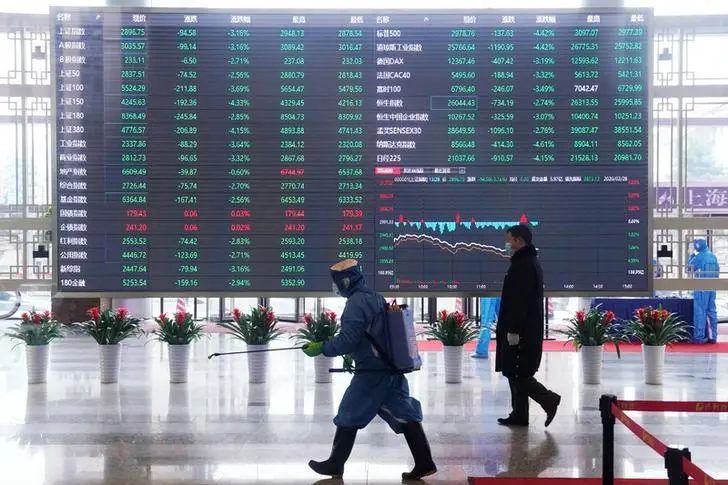PHOTO
China stocks fell for a fourth straight session on Friday, as a number of weak economic data darkened the world's second-biggest economy's recovery prospects. Hong Kong shares also dipped.
** China's blue-chip CSI300 Index slipped 0.6% by the lunch break, while the Shanghai Composite Index declined 0.4%. Hong Kong benchmark index Hang Seng edged down 0.1%.
** New Chinese bank loans tumbled far more sharply than expected in April, data showed on Thursday, adding to worries that the economy's post-pandemic recovery is losing steam.
** The weak readings came hours after data showed deflationary pressures were deepening in China, and days after news that imports had contracted sharply.
** "Investor sentiment likely remains volatile amid debate over macro recovery strength: Based on our conversations with them, investors remain sceptical about macro recovery momentum, as they see mixed signals pointing towards an unbalanced picture," Morgan Stanley said in a note.
** "Weakness in PMI and import data in April, and the spiking youth unemployment rate in March, have accentuated concerns that macro recovery is losing steam."
** China banking stocks fell, as anaemic loan demand and government guidance toward lower lending costs pushed lenders' margins to record lows.
** Resources and construction engineering stocks also declined on signs of economic softness.
** Hong Kong's tech stocks rose 1.2%, helped by a 7% jump in e-commerce giant JD.com after earnings beat.
** Despite disappointing April loan growth, "we expect credit demand to recover further in the rest of 2023," said Tao Wang, head of Asia economics and chief China economist, UBS.
** "Property related credit may stabilize gradually as household income improves and market sentiment stabilizes, while consumer credit may recover somewhat thanks to the ongoing consumption rebound."
** "We expect the A-share market to lead in next phase of the bull market in Asia," Morgan Stanley said. (Reporting by Shanghai Newsroom; Editing by Rashmi Aich)





















